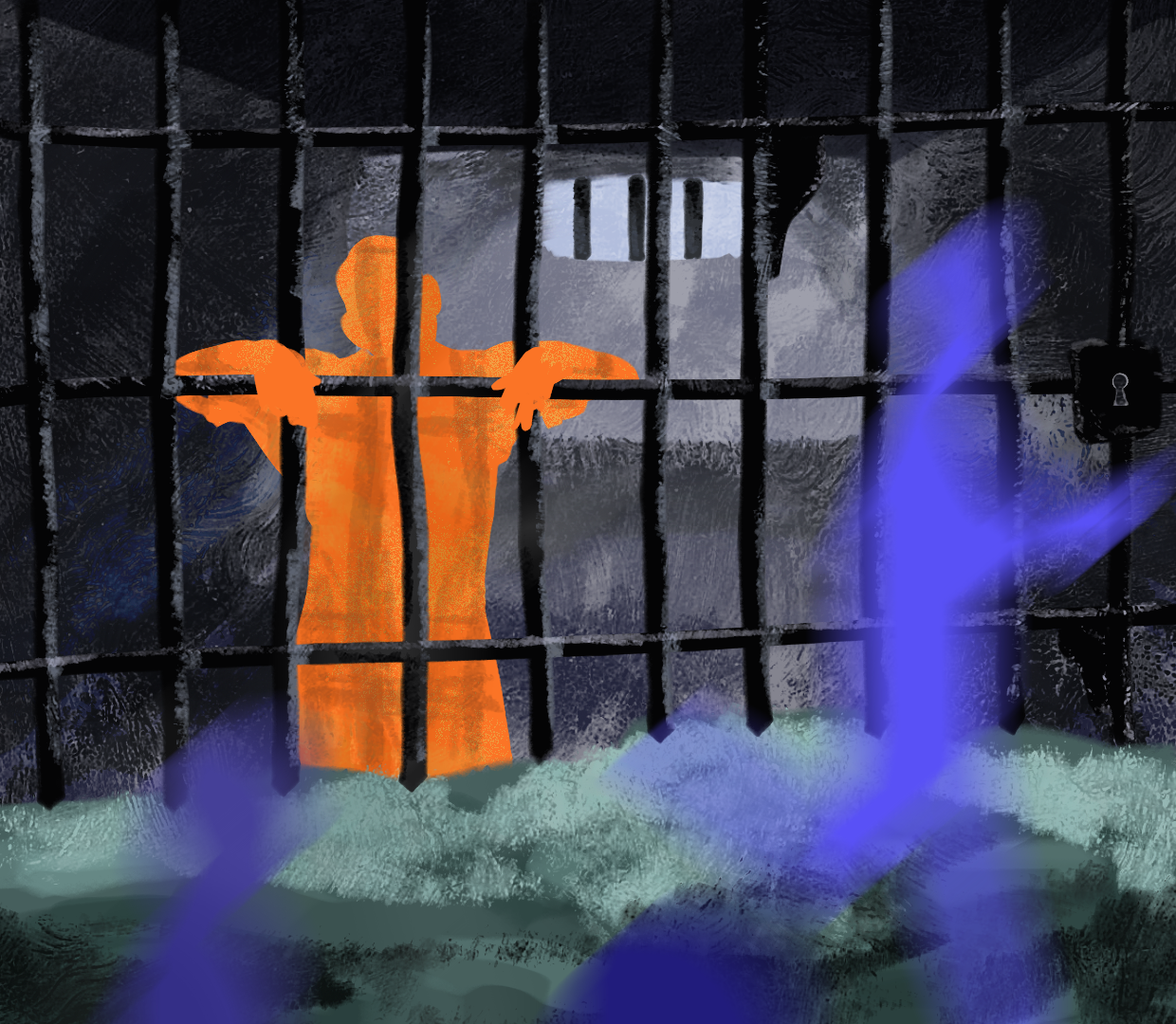An orange jumpsuit does not make a person any less of a person; just like laws apply to inmates, morals do as well.
Leaving a path of destruction in its wake, Hurricane Helene swept across Florida, Georgia, South Carolina, Virginia and Tennessee this year. In North Carolina, more than 550 men at Mountain View Correctional Institution were abandoned and forced to endure horrid conditions. The Intercept reported that during the five days the men were neglected there, their cells flooded, food rations were scarce, power and water outages occurred and their toilets filled with feces, forcing them to defecate in plastic bags, which they had to keep in their cells.

As presidential administrations shift and Trump begins to select his cabinet, it is vital that FEMA and its leaders do not neglect prisoners during natural disasters, especially at a time in which climate change is rampantly spurring the formation of hurricanes like Milton and Helene. During such natural disasters, people often choose to mobilize in order to get out of harm’s way. However, inmates, who cannot leave of their own free will, are being left behind, even in mandatory evacuation zones.
The evacuation of prisoners in preparation for hurricanes is a decision left up to officials, regardless of how common-sensical the risk not evacuating them may pose.
Bridget Gentry, the wife of a man imprisoned at Mountain View, relayed to The Intercept what her husband told her: “We thought we were going to die there. We didn’t think anybody was going to come back for us.”
Leaders’ callousness is inexcusable. Cut off from the rest of the world for five days, the men at Mountain View were subject to wretched conditions as they feared for their lives. Mitchell County, where Mountain View is located, even declared a state of emergency on Sept. 25, finding that Hurricane Helene posed an imminent threat to the people living there.
Tampa Mayor Jane Castor told citizens that, “If you choose to stay in one of those evacuation areas, you are going to die.” Pinellas County is in Tampa. Clearly, the lives of Pinellas County Jail inmates did not concern officials.
Just weeks after the destruction caused by Hurricane Helene, Hurricane Milton then promised Florida, its residents and its incarcerated population, further terror. As reported by Vox, three of the state’s jails located in mandatory evacuation zones — Manatee County Jail, Pinellas County Jail and Lee County jail — went unprioritized in safety efforts, leaving their inmates stuck in the hurricane’s direct trajectory. These jails, according to the New York Times, were only three of many not evacuated.
Officials of Manatee County Jail claimed that the jail was “hurricane-rated,” while Pinellas County officials cited the logistical challenge of moving inmates as justification for their decision. Lee County officials stated that, in case of flooding, inmates could be moved to a higher floor.
None of these rationales are good enough; human lives are worth something. The fact that there was even a slight risk that jail officials were putting inmates in danger should have been enough to compel them to evacuate the prison. Officials at all three decided they would rather put lives at risk than be mildly inconvenienced or spend the money to evacuate them.
The practice of ignoring evacuation warnings when it comes to incarcerated people is, disappointingly, nothing new. During Hurricane Katrina in 2005, prisoners of the Orleans Parish Prison were subject to chest-level flooding while left without food, drinkable water or ventilation for days. During Hurricane Ike in 2008, prisoners of Galveston County Jail had ceiling tiles fall on them as black mold began to grow, electricity went out, sewage utilities failed, food was short, water was contaminated and medical treatment remained unavailable for weeks afterwards.
Similar scenarios also played out during Hurricanes Irene, Sandy, Matthew, Harvey, Irma, Maria and more.
In Florida, the very same prisoners left to die during Hurricanes Milton and Helene were also the ones expected to aid in the relief efforts that followed, which Gov. Ron DeSantis proudly announced. According to the Guardian, Florida is one of only seven states in which incarcerated people are paid nothing for the majority of prison jobs — if they are paid, it is generally as little as 14 cents an hour. Prisoners’ labor is being exploited, while their lives are being put at risk.
The argument that they somehow deserve it ignores the reality of the justice system. Some of the people being left behind in jails have not even been convicted yet. Following what occurred at the Orleans Parish Prison, Human Rights Watch reported that many of the inmates who suffered there had been convicted of crimes like public drunkenness and trespassing, while others had not even been brought before a judge and charged yet.
Coupled with the fact that the justice system has a history of outright wrongful convictions, it should be abundantly clear how inhumane leaving prisoners behind during hurricanes is. The National Registry of Exonerations found that 153 exonerations had occurred in 2023 alone.
If the lives of prisoners are not enough to persuade officials to evacuate prisons, maybe the lives of potentially innocent people will be. It does not matter how safe or secure a jail or prison may seem — leaving incarcerated individuals behind is an unacceptable and immoral risk.; their lives are not expendable because they are behind bars and any logistical problems that come with moving them should not interfere with guaranteeing their safety. The reprehensible act of abandoning inmates is not something any decent human being would allow — and yes, inmates are people too.



